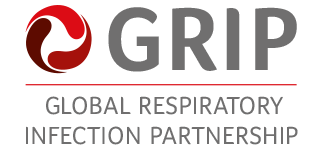Executive Summary
There has been much progress over the last 5 years in terms of getting antimicrobial resistance on the global agenda, supported by initiatives like the Global Respiratory Infection Partnership (GRIP).
The 2015 WHO Health Organization’s ‘Global Action Plan on Antimicrobial Resistance’ published in 2016, together with the WHO ‘Global Framework for Development & Stewardship to Combat Antimicrobial Resistance, Draft Roadmap’, published in May 2017, fuelled the sense of urgency and the need for a collaborative, multi-stakeholder approach. These initiatives have been further championed among individual countries, for example, Dame Sally Davis, the Chief Medical Officer of the UK, has put the issue as one of her central ambitions for her tenure in office.
Despite this multiple challenges remain. Across the developed world, while there is increased awareness of the need for better stewardship, higher pressure on prescribers not to provide antibiotics and an overall increased understanding of the implications of inappropriate antibiotic usage, patient ‘pester power’ remains an issue, with a high volume of patients presenting to physicians still requesting antibiotics for conditions which will not be made better by antibiotic usage, i.e. sore throats.
In developing markets, open/OTC access to antibiotics seems to be one of the biggest issue, as experienced by the GRIP advisors who were in Thailand for this year’s annual meeting. In virtually all cases, when describing the symptoms of a sore throat, antibiotics were freely available and recommended/dispensed within pharmacy, without a prescription. However, knowledge about the alarm symptoms requiring antibiotic treatment and (a sub-set of) symptomatic treatments was present in the pharmacies.
Since its creation, the GRIP advisors have promoted the ‘5 P Pentagon’ which looks at Policy, Prevention, Prescriber, Pharmacy and Patient. Today it is clear that these initiatives complement the WHO strategy, particularly around improving awareness and understanding of antimicrobial resistance through effective communication, education and training.
Looking to the future, priorities remain, including:
- Policy: to ensure appropriate policies and guidelines are in place, not least to limit availability without prescription and that pharmacy remains the first point of call in managing self-limiting conditions
- Prescribers: to reduce the number of inappropriate prescriptions provided for conditions like sore throat infections, which are minor and self-limiting
- Pharmacy: to ensure pharmacy can confidently manage the needs of patients presenting with upper RTI, and endeavour to limit unnecessary physician consultations
- Patients: to reduce ‘patient pester’ power around the need for antibiotics for these self-limiting conditions; to empower self-management instead
In terms of patients, where access to healthcare is based on patient choice or tied to a fee for service, there remains increased pressure from patients. This is a clear factor in inappropriate prescribing. While the digital world has some challenges for health information, it provides clear educational opportunities to drive awareness that for vast majority of patients with these self-limiting conditions like sore throats outcomes will not be enhanced by the use of antibiotics. This applies for illness with a viral origin, which most often occur. For bacterial sore throat, antibiotics modestly shorten symptom duration.
Veterinary and agricultural use remains a huge issue but is outside the GRIP remit. However, it has important implications for how organisms resistant to antibiotics may make their way into the food chain and how genes for resistance are transferred into bacteria infecting humans.
Across all stakeholder groups, the need for initiatives to drive awareness and understanding remain paramount. Building initiatives based around global understanding, but driven by local nuances and needs is critical. GRIP continues to show how the ‘5 P Pentagon’, supported by partnerships and passion to affect change locally, can deliver results.
